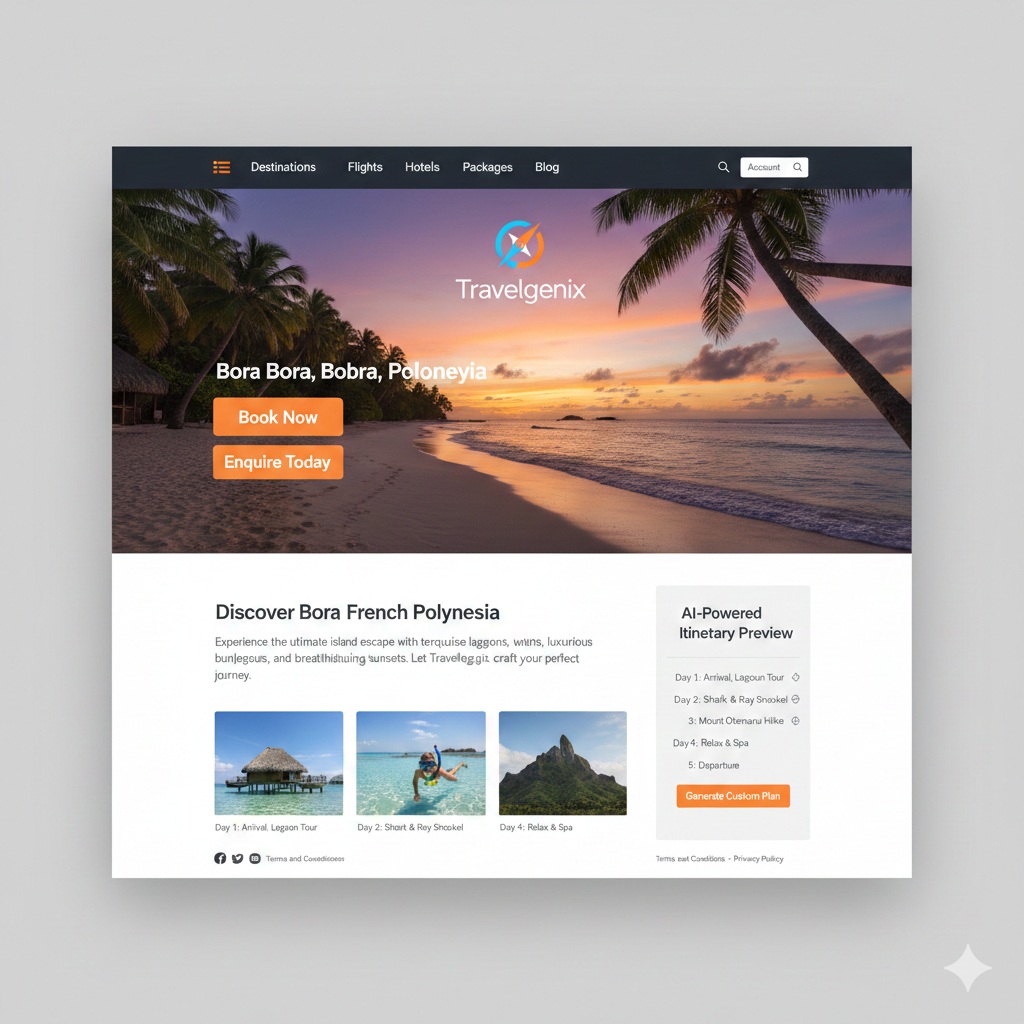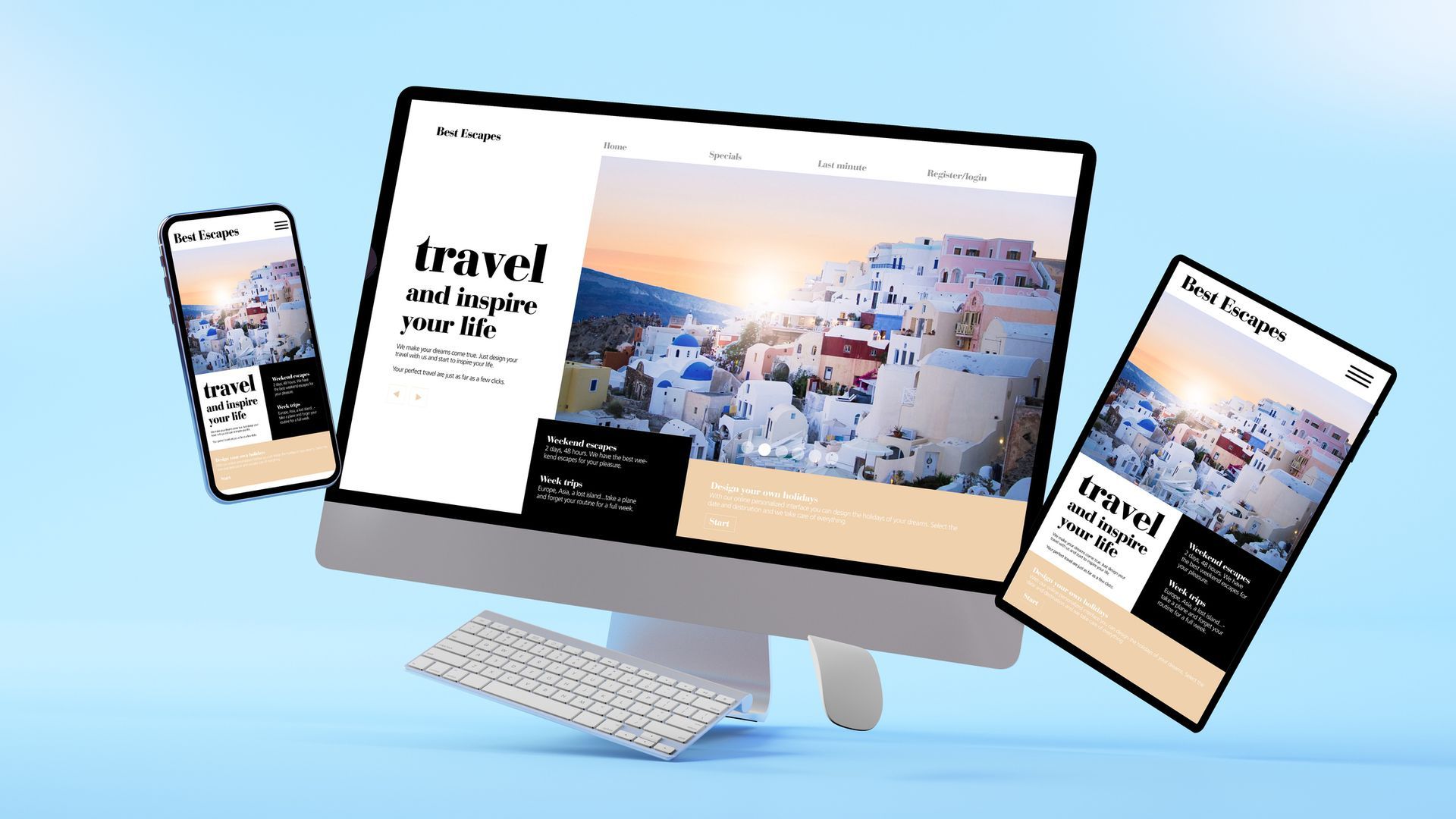Adapt or Be Left Behind: Why UK Travel SMEs Must Embrace Technology Now
Remember the days of dusty brochures, handwritten booking ledgers, and endless games of phone tag to confirm a single hotel room? For some, these might be fond memories. For today’s traveller, they’re a complete deal-breaker. We're living in a digital-first world, and the travel industry has been at the epicentre of this technological earthquake. The rise of giant Online Travel Agencies (OTAs) and the ever-increasing expectations of customers have changed the game entirely.
For Small and Medium-sized Enterprise (SME) travel companies across the UK, this isn't a distant threat; it's the current reality. Sticking to the old ways is no longer a charming quirk – it's a direct route to being overtaken. But here's the good news: the same technology that powers the giants is now more accessible, affordable, and essential than ever for businesses of your size.
This article will explore why embracing technology is no longer optional for survival and success. We'll break down the key areas where tech can revolutionise your operations, enhance your customer experience, and ultimately, boost your bottom line. It's time to stop seeing technology as a cost and start seeing it as your most powerful tool for growth.
The New Travel Landscape: More Than Just a Pretty Website
The modern traveller’s journey almost always begins online. Whether they're dreaming of a sun-drenched beach in the Algarve or a cultural city break in Krakow, their first port of call is a search engine, not a high-street window. They compare prices, read reviews, explore destinations on social media, and, crucially, they expect to book then and there, whether it's 2 PM on a Tuesday or 2 AM on a Sunday.
According to recent market analysis, the online travel booking segment in the UK is projected to grow significantly, with user penetration expected to hit over 70% by 2029. This isn't just a trend; it's a fundamental shift in consumer behaviour. If your business can't cater to this demand for instant, online, and mobile-friendly service, you're invisible to a huge swathe of potential customers.
This is where technology acts as the great leveller. It allows you, the SME with deep destination knowledge and a passion for personal service, to compete on a stage once dominated by corporations with billion-pound marketing budgets. It automates the mundane, freeing you up to do what you do best: craft unforgettable travel experiences.
Key Tech Areas to Revolutionise Your Business
Feeling overwhelmed by the sheer number of 'tech solutions' out there? Let's cut through the noise and focus on the core components that will make the biggest difference to your SME travel company.
The Heart of Your Operation: The Online Booking Engine
This is the non-negotiable starting point. An online booking engine is a tool that plugs directly into your website, allowing customers to search for, book, and pay for flights, hotels, cruises, transfers, and packages directly.
- 24/7 Salesperson: It works for you around the clock, capturing bookings while you sleep.
- Reduced Admin: It automates confirmations, invoicing, and payment processing, drastically cutting down on manual data entry and potential errors.
- Live Availability & Pricing: It connects to global distribution systems (GDS) and supplier inventories, ensuring your customers see accurate, real-time information.
A clunky, slow, or non-existent booking process is the fastest way to lose a sale. A platform like Travelgenix Pro, for example, integrates powerful and user-friendly booking engines for flights, hotels, and cruises directly into a travel agent's workflow and website, making the entire process seamless for both you and your customer.
Knowing Your Customer: Customer Relationship Management (CRM)
A CRM system is so much more than a digital address book. It's the brain of your customer service operation. It allows you to store and manage every piece of information about your clients, from their booking history and travel preferences to their birthdays and anniversaries.
Imagine being able to send a past client a personalised offer for a return trip to their favourite destination, or automatically emailing a "Happy Travels!" message the day before they depart. This is the kind of personal touch that builds loyalty and turns one-time bookers into lifelong clients. A good CRM helps you understand your customers on a deeper level, enabling you to market smarter, not harder.
The Power of Automation: Doing More with Less
As an SME owner, your most valuable resource is time. Automation technology gives you more of it. Think about the repetitive tasks you do every day: sending booking confirmations, chasing payments, sending pre-departure information packs, and requesting post-trip reviews. All of this can be automated.
Setting up automated email workflows means that once a booking is made, a sequence of communications is triggered without you lifting a finger. This ensures a consistent, professional experience for every customer and frees your team to focus on complex queries and high-value sales.
Key Takeaways
- Customer Expectations Have Changed Forever: Today’s travellers are digitally native. They demand instant access, seamless online booking, and personalised communication. Failing to meet these expectations means losing out to competitors who do.
- Technology is an Investment, Not a Cost: The right tech streamlines your operations, reduces costly manual errors, and opens up new revenue streams. It's an investment in the efficiency, scalability, and future-proofing of your business.
- Integration is a Game-Changer: Using a patchwork of disconnected systems creates more work. An integrated platform, like Travelgenix Pro, which combines a CRM, booking engines, and a mid-office system, simplifies your workflow and provides a single source of truth for your entire business.
Beyond the Booking: The Future is Already Here
While getting the fundamentals right is paramount, it's also worth keeping an eye on the horizon. Technologies that once seemed like science fiction are rapidly becoming practical tools for the travel industry.
- Artificial Intelligence (AI) and Chatbots: AI-powered chatbots can be integrated into your website to provide 24/7 support, answering common questions about destinations, booking processes, or visa requirements instantly. This improves customer satisfaction and frees up your human agents for more complex sales conversations.
- Virtual Reality (VR): Imagine offering your clients a virtual walk-through of a hotel room, a cruise ship cabin, or even a 360-degree view from a scenic viewpoint in the Swiss Alps before they book. VR is a powerful marketing tool that can help close sales by offering immersive "try before you buy" experiences.
- Hyper-Personalisation: As you gather more data through your CRM and booking engine, AI can help you analyse it to deliver hyper-personalised travel recommendations at a scale that was previously impossible.
You don't need to implement all of this tomorrow, but understanding where the industry is heading is crucial for making smart decisions about the technology you adopt today.
Conclusion: Your Human Touch, Amplified by Technology
Embracing technology is not about replacing the invaluable human element of your travel business. Your expertise, your passion, and your ability to connect with your clients are your greatest assets. Technology is simply the amplifier. It’s the tool that handles the repetitive, time-consuming tasks, giving you the freedom and the data to provide an even more personal, efficient, and delightful service.
By investing in the right digital tools, you can not only survive in this competitive landscape but thrive, building a more resilient, profitable, and future-ready travel business.
Five Actionable Tips for UK SME Travel Companies
- Audit Your Current 'Tech Stack': Make an honest list of the tools you currently use. Where are the bottlenecks? What takes up the most manual effort? Identifying your biggest pain points is the first step toward finding the right solution.
- Prioritise the Customer-Facing Experience: If your budget is limited, start with what your customers interact with most. A fast, reliable, and mobile-friendly online booking engine for your key products should be your number one priority.
- Seek an Integrated Solution: Avoid 'software sprawl'. Look for a provider, like Travelgenix, that offers an all-in-one platform. An integrated system where your booking engine talks to your CRM and your accounting software will save you countless hours and headaches.
- Start Using Your Data: Even simple data can be powerful. Install Google Analytics on your website to see where your visitors are coming from. Look at your sales reports to see what your most popular destinations or products are. Use these insights to inform your marketing and product strategy.
- Commit to Continuous Learning: The world of travel tech moves quickly. Dedicate a small amount of time each month to reading industry blogs (like this one!), attending free webinars, or talking to technology partners. Staying informed is key to staying ahead.




